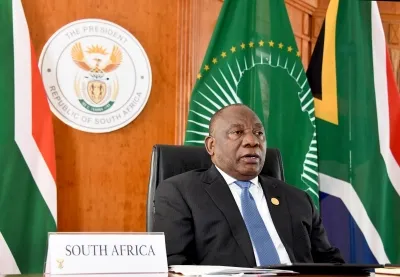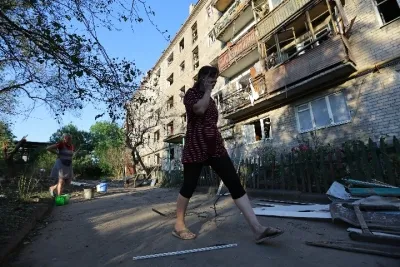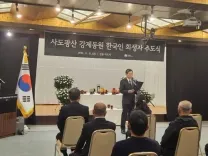Is South Africa's President Championing Gender Equality in Policies During Women's Month?

Synopsis
Key Takeaways
- Cyril Ramaphosa urges integration of gender equality in policies.
- Women are crucial to the upcoming National Dialogue.
- The government commits to gender parity in decision-making.
- Historical context provided through the 1956 Women’s March.
- Recognition of diverse women's experiences is essential.
Cape Town, Aug 12 (NationPress) - The President of South Africa, Cyril Ramaphosa, has emphasized the necessity for gender equality to be integrated into all national policies and decisions as Women's Month unfolds in the nation.
In his recent weekly newsletter released on Monday, Ramaphosa encouraged women to take a prominent role in the forthcoming National Dialogue process, which is set to commence in Pretoria on Friday. He highlighted the crucial part women play in determining the future of the nation, as reported by the Xinhua news agency.
The National Dialogue is designed to unite individuals and organizations to discover shared solutions for the country's pressing issues.
“Women are influenced by every political, social, and economic matter in our nation. Likewise, every crisis, whether concerning unemployment, crime, or climate change, impacts women equally and often more severely than men,” stated Ramaphosa.
“Acknowledging that the well-being of women is intertwined with the future of the entire nation, we are relying on women’s groups and organizations to rally around the National Dialogue initiative,” he added.
The president underscored the significance of diverse representation, noting that rural women, urban professionals, and women with disabilities face varying challenges.
The government has committed to achieving gender parity in all frameworks supporting this initiative, with Ramaphosa insisting that no policy decision should be undertaken “without proper consideration of its specific impact on women.”
This Saturday, as the nation honored Women’s Day, Ramaphosa reflected on the historic 1956 Women’s March, where over 20,000 women of diverse races stood against the oppressive pass laws of the apartheid regime.
“The march was not only a political protest against the apartheid-era pass laws but also a powerful demonstration of women's agency,” remarked the president.
“It marked a definitive statement that the women of South Africa, who were then treated as perpetual minors by the apartheid government, would not remain passive observers while decisions affecting their lives were made without their input,” he concluded.









